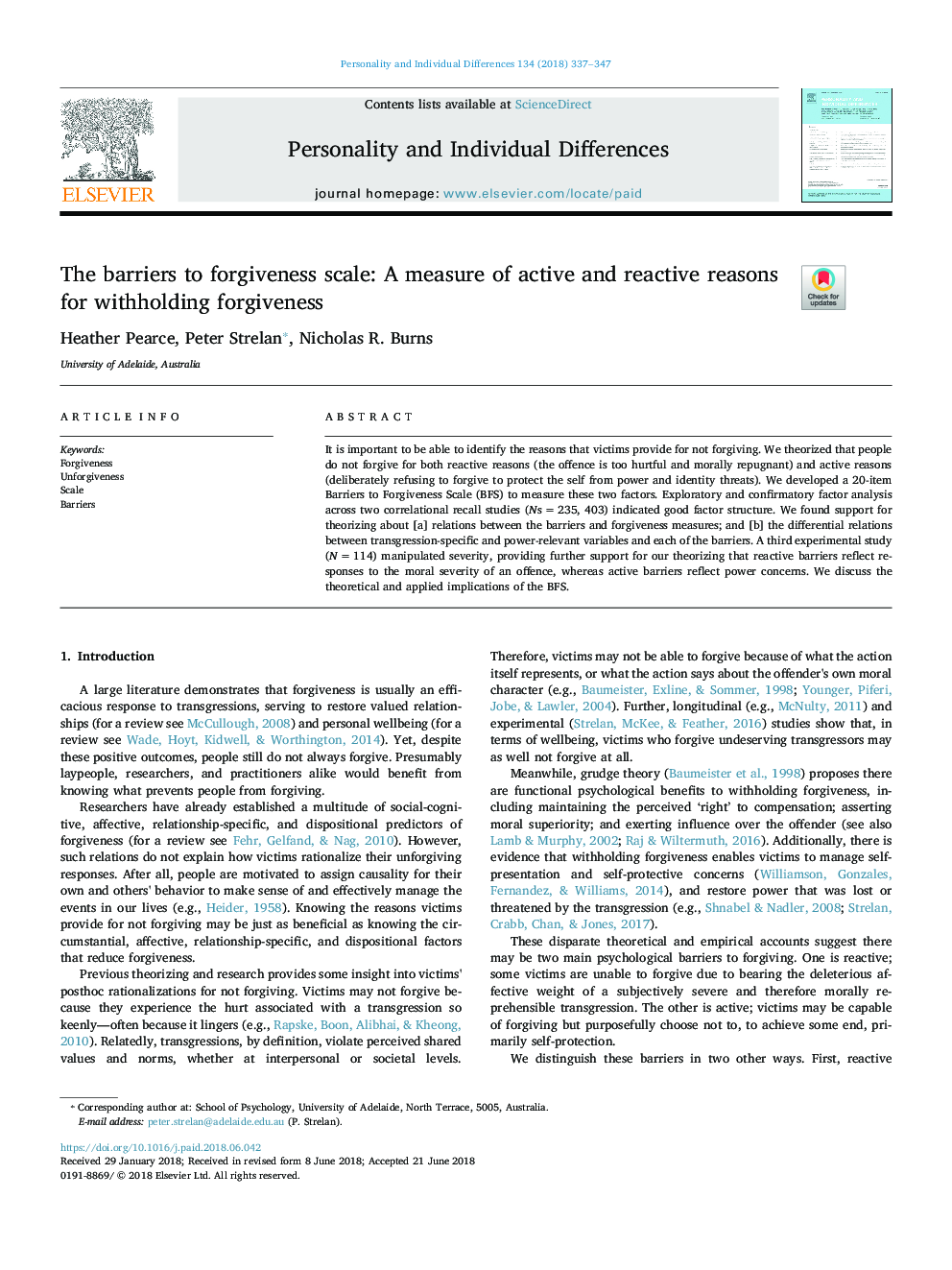| Article ID | Journal | Published Year | Pages | File Type |
|---|---|---|---|---|
| 7248476 | Personality and Individual Differences | 2018 | 11 Pages |
Abstract
It is important to be able to identify the reasons that victims provide for not forgiving. We theorized that people do not forgive for both reactive reasons (the offence is too hurtful and morally repugnant) and active reasons (deliberately refusing to forgive to protect the self from power and identity threats). We developed a 20-item Barriers to Forgiveness Scale (BFS) to measure these two factors. Exploratory and confirmatory factor analysis across two correlational recall studies (Nsâ¯=â¯235, 403) indicated good factor structure. We found support for theorizing about [a] relations between the barriers and forgiveness measures; and [b] the differential relations between transgression-specific and power-relevant variables and each of the barriers. A third experimental study (Nâ¯=â¯114) manipulated severity, providing further support for our theorizing that reactive barriers reflect responses to the moral severity of an offence, whereas active barriers reflect power concerns. We discuss the theoretical and applied implications of the BFS.
Keywords
Related Topics
Life Sciences
Neuroscience
Behavioral Neuroscience
Authors
Heather Pearce, Peter Strelan, Nicholas R. Burns,
